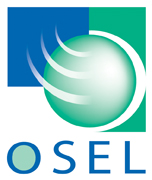Lagenaur, LA, Sanders-Beer, BE, Brichacek, B, Pal R, Liu X, Liu, Y, Venzon, D, Lee, PP, Hamer, DH. Mucosal Immunol. 2011 Nov;4(6):648-57. doi: 10.1038/mi.2011.30. Epub 2011 Jul 6.
Synopsis: The rhesus macaque model was used to examine proof of concept for the MucoCept approach. Macaques were colonized with Osel’s engineered Lactobacillus jensenii expressing modified Cyanovirin-N (mCV-N). The mCV-N protein was detected in cervical-vaginal lavage (CVL) samples for up to six-weeks after macaques were dosed. The mCV-N protein localized to the vaginal mucosal surface and vaginal lumen of the macaque. Measurement of four key biomarkers [IL-1β, IL-6, IL-8 and IL-1RA ] of mucosal inflammation in CVL, revealed no significant change from baseline in colonized macaques. Finally the macaques were challenged with a high infectious dose of Simian (S) HIV. SHIV infection studies are used as a surrogate for HIV infection in people. Colonized macaques showed reduced SHIV transmission by 63% in this primate vaginal challenge model. Animals that did become infected had 6-fold lower viral loads than control animals. The product appeared efficacious, safe and did not trigger any inflammatory responses in the vaginal mucosa.
